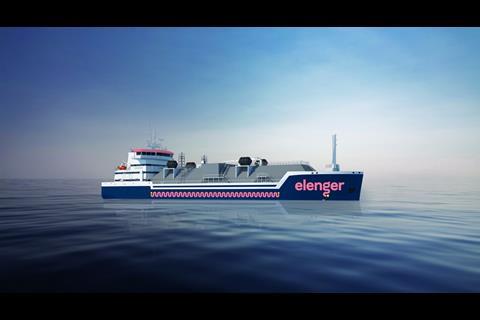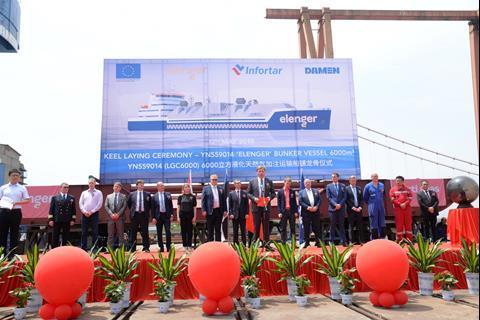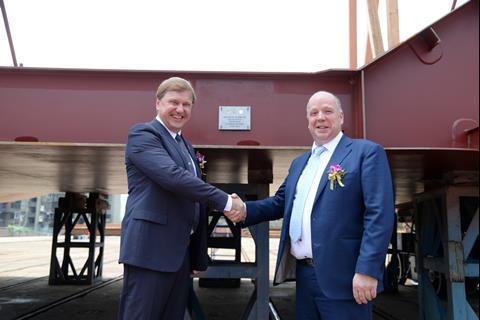After the steel-cutting ceremony in March the keel-laying ceremony has taken place at Damen Yichang Shipyard in China for the LNG Bunker vessel for the new energy brand ELENGER, formerly known as Eesti Gaas. The event was attended by Mr. Ain Hanschmidt, Chairman of the Advisory Board of Elenger and CEO of its parent company Infortar, together with a group of senior colleagues from both companies. Representatives from Damen Shipyards Gorinchem, Damen Yichang Shipyard and Bureau Veritas were also present.
The ceremony included the Dutch tradition of welding of three coins on to the first section of the keel to give the vessel good luck.
With a 6,000m³ capacity, the new vessel will play a vital role facilitating the adoption of LNG by providing an efficient ship-to-ship distribution service for all kinds of LNG vessels in the Baltic region. Following sea trials in the spring of 2020, the ship will arrive in Estonia next summer and will start serving LNG clients in the autumn, carrying out bunker activities at designated locations both in and outside ports. Elenger currently uses road tankers to refuel Tallink’s LNG-powered Megastar ferry, which operates between Tallinn and Helsinki.
In his welcome speech, Damen sales manager Peter Anssems noted that the newbuilding project is an excellent example of the cooperation between China and Europe and underlines the capabilities that Damen Yichang Shipyard has to offer as a builder of sophisticated vessels both for its domestic and export markets.
Damen offers a range of state-of-the-art Liquified Gas Carriers that are ideal for bunkering operations. The vessels range in capacity from 1500 to 7500 m³ and all feature highly efficient hull forms, comfortable, modern accommodation and wheelhouses with excellent all-round visibility for both sailing and manoeuvring in harbour. The cargo tanks and their systems are supplied by leading manufacturers and the vessels can use vaporised LNG on board for propulsive and auxiliary power. This provides an economic alternative to conventional fuels and reduces the need for liquefaction.














